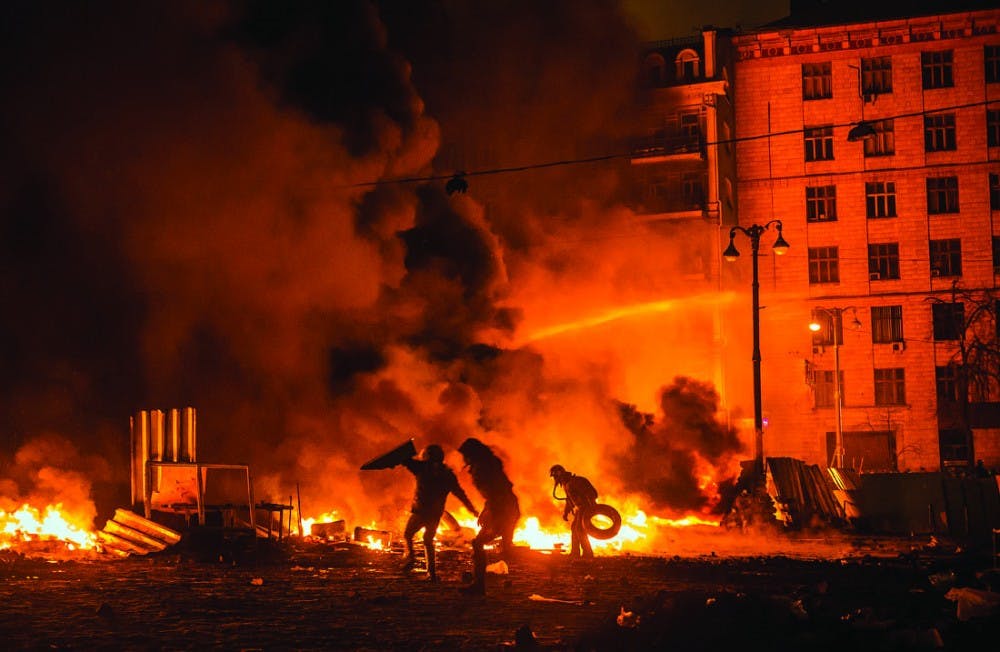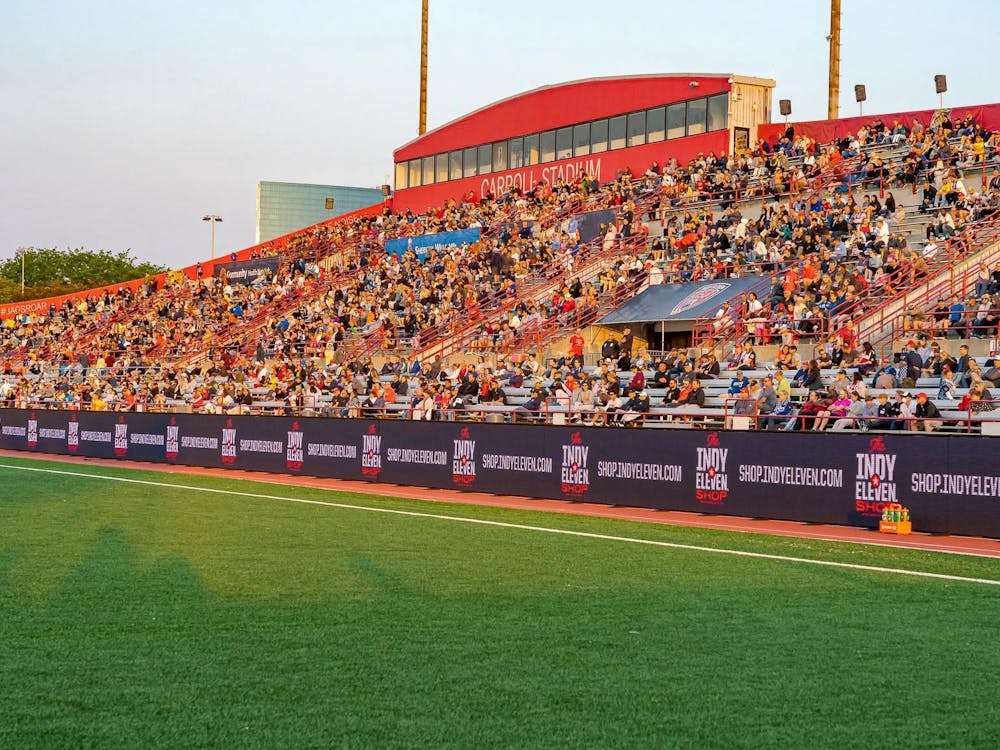The ongoing protests in Ukraine have a Ball State professor and Ukrainian native feeling isolated and removed from his homeland.
Hundreds of thousands of demonstrators continue to fight against the Ukrainian government after Tuesday’s repeal of anti-protest laws. In late November, the government indicated it would strengthen relations with Russia instead of the European Union, sparking a series of demonstrations. The government responded Jan. 16 with the strict anti-protest laws that increased dissent.
Sergei Zhuk, an associate professor of history, has followed the situation as it has developed over the last few months. Zhuk arrived at his class History 150: The West in the World last semester choked up at the initial scenes of fighting and unrest.
This week, he said it was no easier.
“Can you imagine how people feel over there? It’s very easy to teach revolutions in my classes, but very difficult to live [there] when revolution is going on,” Zhuk said.
At the movement’s peak in December, it included hundreds of thousands of people. The numbers had been decreasing to tens of thousands, but the passage of anti-protest laws increased the numbers.
What struck Zhuk the most was not the size of the protests, but the people involved.
“I saw how these ordinary people, without leaders, became very brave defenders of these ideas of democracy and freedom,” he said.
Zhuk said he originally thought the November wave of demonstrations was a repetition of the Orange Revolution in 2004. During the Orange Revolution, Ukrainians fought against what the nation’s Supreme Court called a rigged election, causing a new vote to take place.
The problem with the Orange Revolution was, in Zhuk’s opinion, that businesspeople influenced the outcome to benefit their own interests.
This time is different, his friends back home told him.
“They told me ‘Sergei, it’s more than just a movement for joining the European Union. This is a movement against corruption in government,’” Zhuk said.
Western media has reported the protests are in support of a relationship between Ukraine and the EU, he said. Though that may have been accurate at one point, Zhuk said the focus changed because of the harsh anti-protest laws.
“Today, the majority of the population of Ukraine is not fighting for Europe, but against [President Viktor] Yanukovych and corruption,” he said.
Zhuk began taking the revolution more seriously in December when friends in his hometown told him about police brutally beating protesters. The violence originated in Kiev, the capital of Ukraine, and spread to other cities this month. Zhuk’s hometown, Dnipropetrovsk, is one of those cities.
In Dnipropetrovsk, protesters approached a major administration building where police and pro-government “titushki” attacked them. Titushki are people hired to confront protesters, Zhuk said.
A video of the encounter shows government supporters suddenly striking running protesters, and this increased Zhuk’s concerns about his home. The titushki and police surrounded and beat the protesters repeatedly. At one point, a protester with his face covered in blood was helped to his feet and into a stretcher.
At least five protesters have died in the Kiev clashes, according to the KyivPost.
Though disturbances have broken out across the country, Zhuk said the world’s focus remains on Kiev. He said the West could help by freezing Ukraine’s assets and denying travel visas to top officials. This would push these leaders to step down from power. On Jan. 23, the U.S. revoked visas from Ukrainian officials that are linked to violence, according to The Associated Press.
Ukrainian Prime Minister Mykola Azarov resigned Tuesday because of his lack of popularity.
Zhuk said the ideal resolution to this crisis would be a joint, cooperative conference between Russia and the EU over new elections. On Tuesday, Russian President Vladimir Putin and two EU leaders discussed Ukraine during a summit, according to the AP. Both sides acknowledged individual interests in the country, but explored solutions to the conflict. Russia promised to continue financial support and lower gas prices for Ukraine.
Before anything, Zhuk said, the current president Yanukovych must leave office.
For now, protesters in Kiev have occupied the city’s Independence Square. They refuse to leave the area until early elections are held and the current government is dismissed. The government met the earlier demand of repealing the unpopular anti-protest laws.
“[The protesters] will never leave this place,” Zhuk said. “These guys are very brave, they have nothing to lose.”
INTERACTIVE: See the geography of some of the Ukrainian protests
TIMELINE: What led to this?
Q and A: Ukrainian college student speaks out about her country’s unrest





